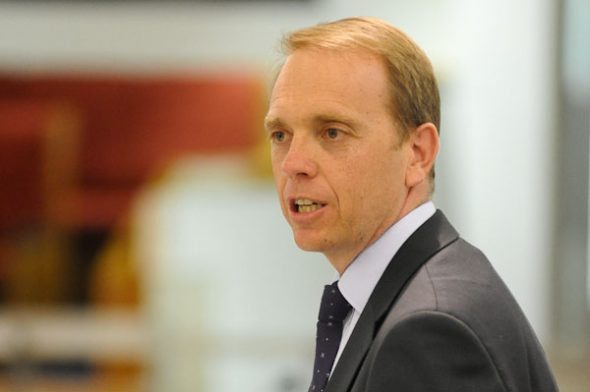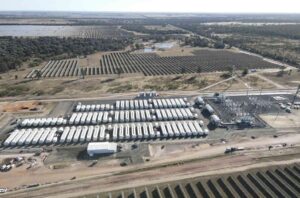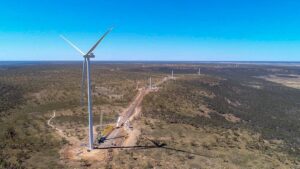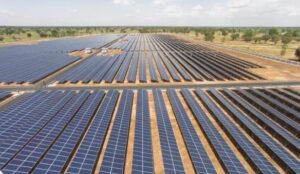ACT energy and environment minister Simon Corbell has achieved a significant victory on the national policy agenda, winning agreement from state and federal energy ministers to take carbon emission seriously in setting energy policy.

It might seem like a statement of the bleeding obvious, given the critical role that electricity plays in Australian national emissions (more than one third), but energy and environmental policies do not often meet.
A perfect illustration is the federal government Energy White Paper, which was based on a scenario that would allow for a 4°C increasing in average global warming, rather than the 2C limit that the government says it has signed up to,
The one exception is in the ACT, where Corbell has combined the energy and the environmental portfolios, and implemented ambitious plans to have 90 per cent renewables by 2020, and slash emissions by 40 per cent.
At the COAG Energy Council meeting in Perth on Thursday, Corbell won support for his strategic issues paper that recognised rooftop solar plus battery storage as a key abatement technology, proposed to align renewable energy policies, and to formulate a plan to retire 5,000MW of redundant coal fired capacity.
“While energy and carbon policies have traditionally been considered separately their interactions are undeniable,” Corbell said in a statement.
“Climate change can no longer be considered as only an environmental issue. It must now be recognised as a major structural reform agenda for energy ministers and the energy sector.”

Corbell says this was accepted unanimously, including by federal industry minister Ian Macfarlane.
“This is welcome development,” Corbell told RenewEconomy. “Energy policy and climate policy are related and should be considered as such.
“For first time we have a statement from this government body saying climate and energy policy must be considered in co-ordinated manner and the governance of the NEM will be a very important part of Australia’s efforts.
“We need to be ahead of the curve on this, and we felt we weren’t.”
Corbell says the agreement will set in train a process where governments and energy market institutions can plan the decarbonisation of the National Electricity Market, a process that Labor intends to accelerate with its 50 per cent renewable energy target for 2030.
Among the major issues is how regulatory frameworks can enable greater consumer choices in relation to new products and services, such as solar plus battery storage.
The ministers agreed to recognise emerging solar-battery storage products as a potential contributor to decarbonisation and wholesale market development; to develop clear and consistent frameworks for the deployment of the technologies, and to address inefficient battier to solar-battery storage development.
Presumably, this includes the structure of tariffs that might dissuade the adoption of such technologies. It calls on the Australian Energy Market Operator to look at how deployment of solar and battery storage can be accelerated.
AEMO recently conducted a study which suggested that three out of four households would add battery storage to new rooftop solar systems. But its analysis did not include the retrofit market.
The other big issues is the problem of redundant coal-fired generators. Corbell’s paper says it is clear that at least 5,000MW of coal-fired power needs to exit the market.
The paper calls for the AEMO to develop and consider scenarios in which the emissions intensity of generators can be used to influence the distribution and timing of generator exit.
“Around 5,000 MW of generation needs to exit the market to allow remaining generators to at least cover their operating costs,” it says.







